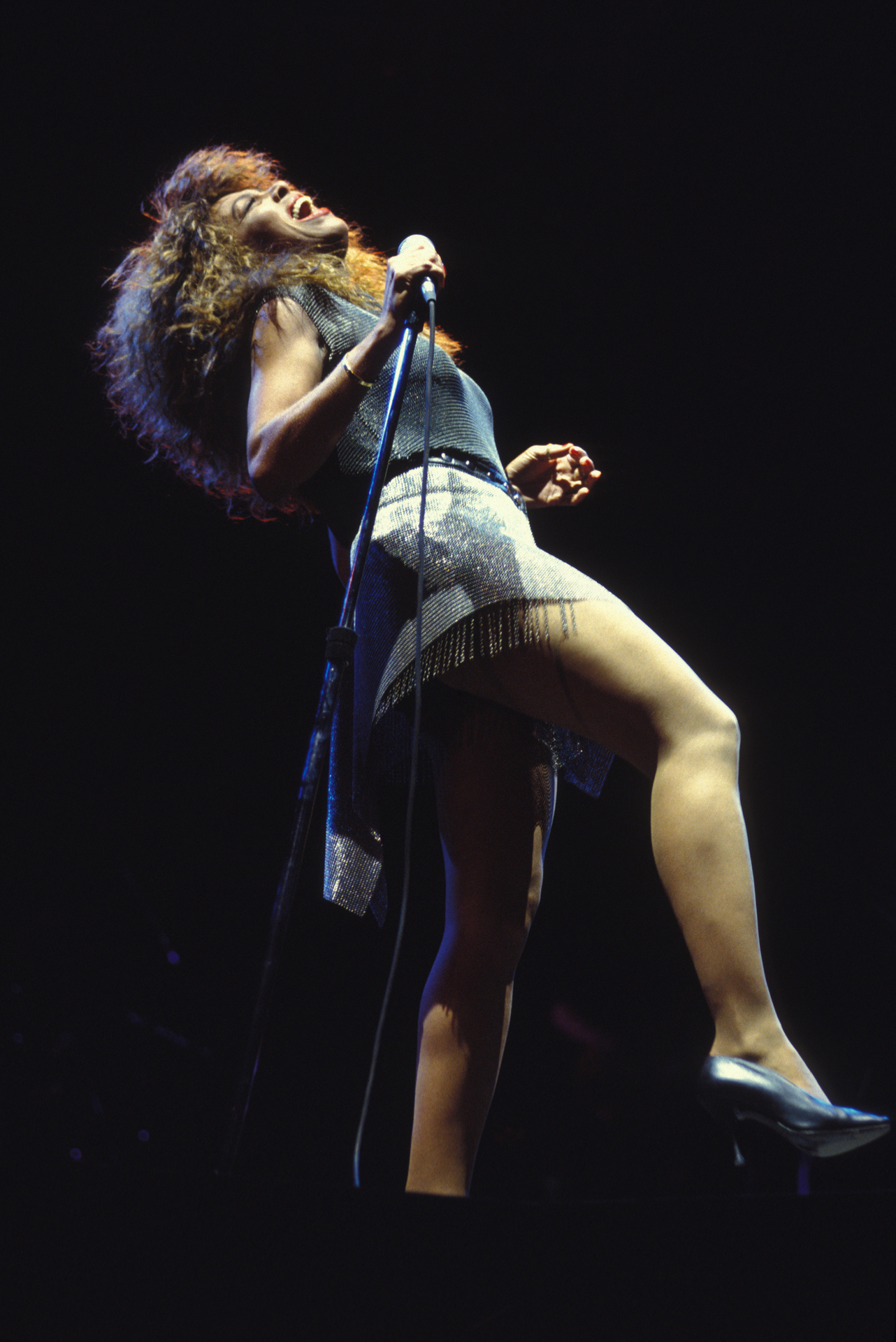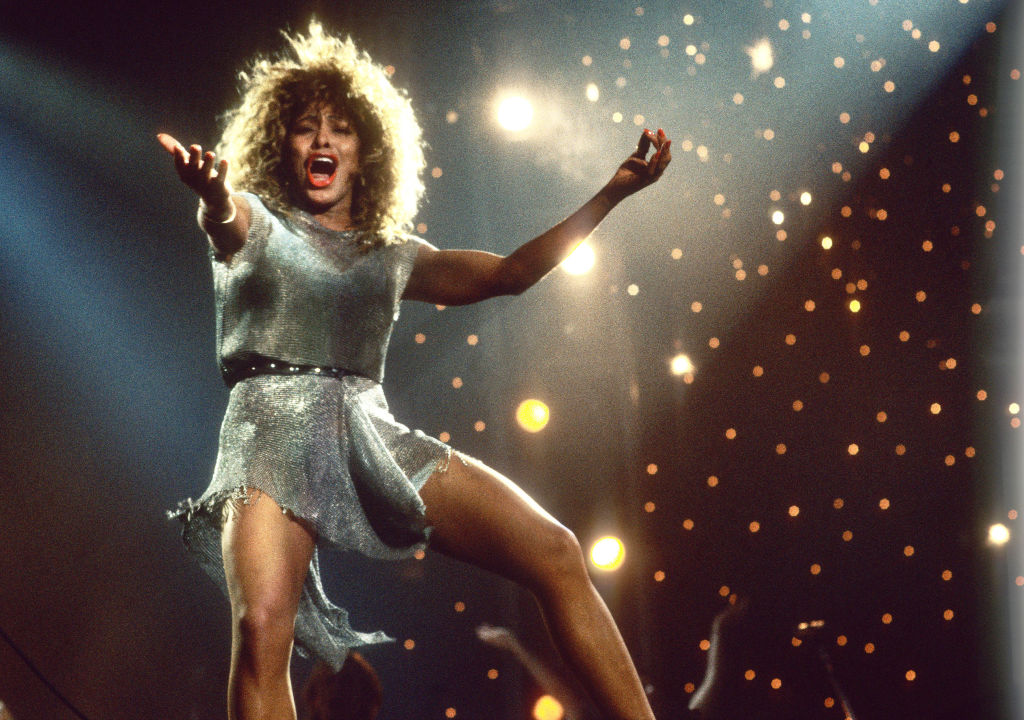To be a Baptist gospel choir singer from Nutbush, Tennessee, and dream of being the first Black rock and roll performer to sell out football stadiums is a daunting desire to have, let alone achieve. However, Tina Turner did just that and HBO’s documentary TINA shares that story from desire to fulfillment.
Magnetized by her huge voice, swinging hair, and massive stage presence in a sequin mini dress, I loved Tina before I knew I loved rock and roll. It was as if I’d been born with the lyrics of “River Deep Mountain High” pre-programmed in my brain. I still remember wearing my mom’s jewelry and singing “do I love you, my oh my” into a hairbrush, mimicking Tina’s dance moves in the mirror. I was drawn to her before I knew her past, long before I found inspiration in the resilience she needed to stand on top of all of that music.
Although the 81-year-old Queen of Rock and Roll’s journey has been shared via memoir, motion picture, and more recently as a musical, Academy Award-winning directors Dan Lindsay and T.J. Martin were eager to share a different point of view with their film, because as Martin tells me during a call with both directors, “We wanted to explore what Tina thinks about the story of Tina.
“There’s a version of this where it’s Rod Stewart and Mick Jagger talking about her artistry and all the things she did for music,” Martin continues when asked about the narrative behind the documentary. “We knew we wanted people to experience that aspect of it, but we didn’t feel we needed somebody to be like ‘then she changed the game’ and you know ‘she’s an amazing dancer!’ Like, I got that. And because ideally, we’re setting it up so you just see these performances and you consume that, but what we wanted to do in terms of the voices was what felt natural to the point of view we took as well: Who are the people who’ve embodied her story or have been scribes of her story? That’s why you get Carl Arrington who wrote the article, Kurt Loder who wrote the book, Angela Bassett who played Tina. So the whole thing is through the lens of these individuals that have sat and consumed and digested and lived with her story.”

In her own words, Tina’s had an abusive life and there’s no other way to tell the story. It’s a reality. It’s the truth. However, throughout the film, there are countless interviews where she reiterates that she’d prefer not to revisit the past, sharing in the opening, “You don’t like to pull out old clothes, you know? It’s the old memories you want to just leave that in the past and [be] done with. A lot of things you don’t really want to say but there comes a time when you do have to say it.”
“Tina’s very open. It’s weird, it’s not like she…I’m trying to use my words right.” Lindsay pauses when asked about balancing the stars’ reluctance to revisit her past with the necessity of sharing a pivotal part of her story. “She understands that there are consequences to talking about that stuff. It’s not like we had to pull it out of her, she’ll talk about it. But she knows that in doing that, it’s going to bring up all of this stuff and so she’s very hesitant to even think about, or be reminded of that time in her life.”
Those consequences and understanding them informed the direction of the film. “In meeting Tina and recognizing while we were trying to find ‘what are we adding to the story?’ because it’s been told so many times, and recognizing that her trauma is still kind of bubbling just underneath the surface even at this chapter in her life,” Lindsay continues, “that was a revelation for us.”
Martin mirrors that sentiment, sharing, “The fact that this chapter in her life, her emotional well-being, and her spiritual well-being is something [she] has to work on every day, it’s a process. It’s not, she survived this moment, and wow, she’s over that and that’s the end of that. So that is hands down the biggest revelation.”

Tina’s first harrowing telling of the abuse and torture she’d experienced at the hands of Ike Turner was to People in 1981.“The intention behind that was something we weren’t privy to,” Martin recalls. “The fact that everyone in the music industry still associated her with Ike, so the motivation was to say, ‘well, if I come forward with this story maybe I can kind of get rid of Ike and move on as a solo act.’ That just further complicated her narrative because as we all know, it’s cemented her to Ike for the rest of her life.”
One of the ways Lindsey and Martin navigated that complicated narrative was by intentionally using excerpts from previous interviews when sharing the grittier details of Tina’s story. “It allowed us to kind of protect her in our interview with her,” Lindsay shares.
In spite of the darkness shadowing her success, what the documentary shines a light on is Tina’s power in being the central narrator, of having ultimate control over her story.
“There’s a paradox or a contradiction when survivors come forward and tell their story that has a very positive effect on larger society. It’s revealing a truth that maybe has been hidden and can also communicate to other people that are going through that that they’re not alone,” Lindsay reflects when asked what he hopes people will take away from the film. “And so that is a very good thing, but I think what we often forget is when we hold up certain people as survivors and as symbols of that, we ask them to revisit those things to hopefully again shed light on it for other people. But we have to keep in mind that that can be a re-traumatizing thing for them over and over and there is no answer to that. That paradox in that complication is what we hope people will take away from this and think about.”
One of the most staggering moments in the film comes from an interview excerpt between Tina and her I, Tina co-author, journalist Kurt Loder. She asks, “Why did I get so far without love?” and continues the self-inquiry wondering, “How could you say you deserve a well-to-do family when you are with this body when you came from the cotton fields, when you came from the family that you came from, when you came from all the destruction and mistakes?” There’s barely a moment that passes before she answers her own questions. “Because I want more. Simply because I want more, Kurt.” Then she reflects. “Look at what I’ve done in this lifetime.”
Tina airs Saturday, March 27 on HBO.





